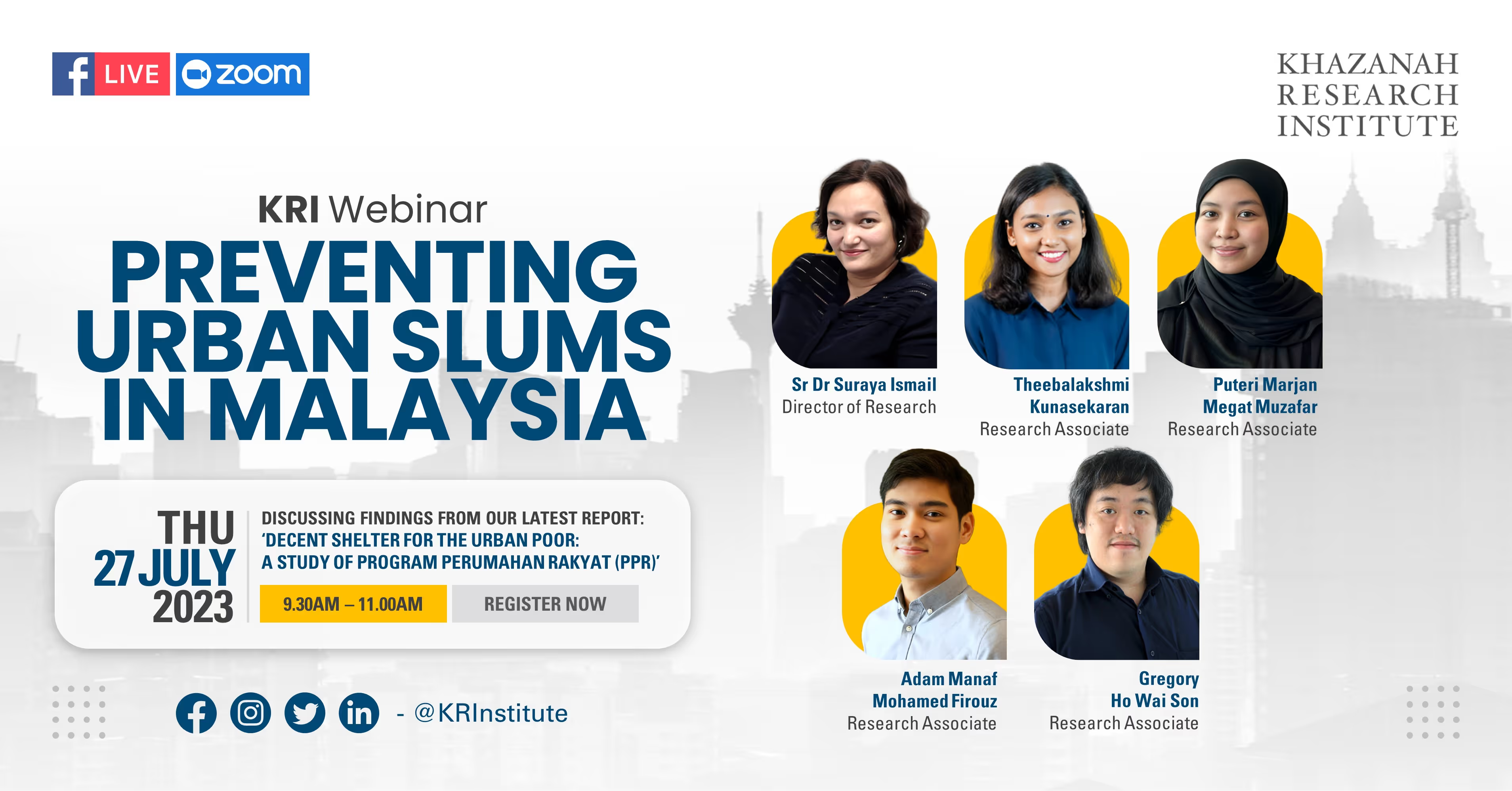
On 27 July 2023, KRI hosted a webinar outlining findings from the recently published report, ‘Decent Shelter for the Urban Poor: A Study of Program Perumahan Rakyat (PPR)’. The webinar explored the importance of housing standards in building and preserving good quality home environments, practical implementations, international perspectives and the implications for existing homes.
Houses play a crucial role in providing individuals and households with a sense of security, access to opportunities, and a space for community interaction. However, at its core, a house must fulfil its fundamental purpose: to provide shelter. In providing shelter, what are the attributes of a house which households are not only satisfied with but genuinely happy to inhabit?
The panel consisted of the authors of the report, Sr Dr Suraya Ismail, Theebalakshmi Kunasekaran, Puteri Marjan Megat Muzafar, Adam Manaf Mohamed Firouz and Gregory Ho Wai Son. The panels discussed on the housing standards of the PPRs (a social housing programme in Malaysia) and its implications on liveability, and concluded with policy recommendations to ensure that social housing in Malaysia is well managed and is of good standards.
PPRs at risk of becoming urban slums
The webinar delved into the evolution of Malaysian housing policies over the years, focusing on the social housing programme, Program Perumahan Rakyat (PPR), an initiative introduced to address urbanisation challenges and affordable housing needs among the urban poor and vulnerable groups. The panellist highlighted two critical issues potentially leading to PPR buildings becoming urban slums; poor maintenance and housing standards. Additionally, the panellists emphasized the importance of aligning financial incentives between federal and state governments for effective social housing management and the role of acceptable housing standards in ensuring a decent quality of living for residents.
Surveying the way to better housing
Following the discussion on the need for good standards for PPRs and social housing in general, the panellists elaborated on how user satisfaction surveys (also known as housing/residential satisfaction surveys) can help shape those standards by soliciting feedback from residents. KRI’s survey of selected PPRs highlighted several aspects of the housing environment that require further attention such as the safety and security of the complex, the number and condition of lifts, availability of shared spaces (e.g. parking space) as well as sanitation and cleanliness. The study also found that the design of the unit and complex did not adequately cater to the diverse demographic profiles of residents, including large families and elderly or disabled individuals.
Shifting to social housing as a management responsibility
To rectify the structural and management issues causing liveability issues in PPRs, three policy thrusts were proposed by the panellists. Policy Thrust 1 is managing PPR households to ensure that the poor and vulnerable are not neglected without any shelter, while those with a stronger financial position are assisted in graduating into the private housing market. Thrust 2, relating most directly to standards, is managing PPR housing units to ensure decent living in existing and future PPR housing that meet the specific needs of residents. This is by raising standards and introducing multiple unit sizes, with an institutional pathway for continuous building improvements, involving life cycle costing for good maintenance and participatory processes. Thrust 3 is the management of private housing stock to enable PPR residents to graduate into housing options that suit their needs and budget, without making them worse-off.
Want more stories like these in your inbox?





